- Home
- Daphne Du Maurier
The Winding Stair: Francis Bacon, His Rise and Fall Page 8
The Winding Stair: Francis Bacon, His Rise and Fall Read online
Page 8
An upright feather £100
A crooked feather £100
A fleur de lys feather £100
The pendants my tokens £50
The necklace of pearl £50
My fair diamond ring £45
The items would hardly have qualified Alice Bacon to make a dazzling appearance at Court, with all eyes turned upon her in admiration. It is not difficult to imagine what Lady Hatton would have said, had her former suitor Francis bestowed them upon her… Finally, following upon these and other items, he gives a list of debts ‘absolutely cleared’, the names of one or two former creditors familiar to the reader, such as Nicholas Trott, and Alderman Spenser who had been Lord Mayor of London when brother Anthony lived in Bishopsgate. It was Alderman Spenser who used to entertain at Crosby Hall, and whose daughter eloped from a window in a laundry basket and ran off with Lord Compton.
The private memoranda, however, had been laid aside by 1609, and apart from the letters to Tobie Matthew we hear nothing about Francis Bacon, not even from the gossips Chamberlain and Carleton. Indeed, their own letters that year report little of interest to the reader of today, and the one publication, on May 20th, calculated to excite later generations to a frenzy of controversy passed without any comment whatsoever.
This was the appearance in quarto of ‘Shake-Speares Sonnets. Never before Imprinted. George Stevens at London. By G. Eld. for T.T. and are to be solde by John Wright, dwelling at Christ Church gate 1609.’ The spelling of the author’s name is intriguing, with the Christian name William omitted. There was only one printing, and the poems were not to appear again until 1640. Scholars and historians have argued the question of the dedication for over a hundred and fifty years.
To the only begetter of
these ensuing sonnets
Mr. W. H. all happiness
and that eternity
promised
by
our ever-living poet
wisheth
the well-wishing
adventurer in
setting
forth
T.T.
Does ‘begetter’ mean procurer—i.e., he who sold the sonnets to T.T. (Thomas Thorpe the publisher)—or their inspirer, the ‘lovely boy’ to whom most of the sonnets are addressed? If the former, as A.L. Rowse asserts, then the leading favourite for the identity of Mr. W.H. is William Harvey, third husband of the dowager Countess of Southampton and stepfather of the young Earl of Southampton, Henry Wriothesley, whom the majority of scholars believe to be the ‘lovely boy’. Others, however, claim that the word ‘begetter’ means inspirer, and here a string of claimants run the race, the main rival to Henry Wriothesley—his initials reversed—being William Herbert, the 3rd Earl of Pembroke. Hard upon their heels gallops Leslie Hotson’s William Hatcliffe, a student at Gray’s Inn, who was Prince of Purpoole in the annual revels of 1588–89. This ingenious theory has a certain appeal for those who, like the present writer, can fancy a young barrister of Gray’s Inn as author of many of the sonnets; nevertheless, that same young barrister, when moving with his brother Anthony in higher circles, where the Earls of Essex and Southampton held sway, would have found even greater inspiration in that lively group of friends than in the confines of the Inns of Court.
Essex and Southampton both wrote poems, as did Robert Sidney, brother of the famous Philip, and Fulke Greville, a close friend to Francis Bacon. Whether all the sonnets—some of them among the best-loved poems in the English language, others not so often read—were penned by the same author, without contributions from a separate source, has been discussed by scholars the world over, along with the interpretation of the more baffling lines—does this one relate to some contemporary event, does that allude to an inner struggle within the poet himself? Even the date of composition has not been finally proved, though 1592–94 is generally assumed to be correct. Many belonging to that glittering circle surrounding the Earls of Essex and Southampton may have contributed a poem that eventually found its way into Thomas Thorpe’s collection of sonnets.
By the time the sonnets appeared in 1609 the author or authors could no longer have been young. Some, possibly, were dead, despite that dedication which speaks of ‘our everliving poet’. Even T.T. the publisher may have been as confused as we are about their true identity.
It must not be forgotten that Anthony Bacon, brother of Francis, was sending sonnets back to England from France as early as the mid-1580s; and as a close confidant of the Essex circle, devoted to Robert Devereux, he cannot be entirely dismissed, should the authorship have been shared. In the not-so-often quoted sonnets 37, 66 and 89, where the poet writes of his lameness—though with quite another connotation, according to A. L. Rowse—the meaning may have been quite simply that he who wrote was lame. Perhaps William Shakespeare also walked with a limp.
Dark ladies come and go. In 1609 the favourite Moll Fitton, claimed as the original by those who fancy William Herbert, Earl of Pembroke, as Mr. W.H., was widowed and had retired into the country. Emilia Lanier, the latest to join the course, had vanished into obscurity; though possibly it was a relative of hers, Bassano, who was ‘server’ or waiter to Francis Bacon some years later, the only Italian amongst some seventy of his servants.
Elizabeth Hatton, wife of Chief Justice Coke, was forgotten by no one. In the March of 1610 she gave a supper-party, according to the gossips, and there was some trouble about the seating of her table, whether the Earl of Airlie should take precedence over the Earl of Pembroke. Prominent in the circle about Queen Anne, and well to the fore when masques were produced at Court, she would be a favourite topic of the gossips seven years later. But when the sonnets were first penned, possibly in the 1590s, she was the widow of William Hatton (a contender for Mr. W.H.?), who had fought beside Philip Sidney in the Netherlands, and was a stepbrother to William Underhill, the owner of New Place, Stratford-on-Avon. In 1597, when William Underhill sold New Place to William Shakespeare, Francis Bacon courted Elizabeth Hatton, and—so the gossips said—had Fulke Greville as one of his rivals. Was she dark or fair? Alas, no portrait exists to tell us. The mystery remains. Dark ladies, lovely boys and ever-living poets continue to baffle many of us in the present century, despite the certainty of scholars and historians.
Meanwhile, at long last, Parliament met on February 9th 1610. Among the most pressing matters to be discussed were his Majesty’s finances. It was a delicate business, and Francis was given the unenviable task of producing a balance sheet.
King James had now been on the throne for seven years, and the Crown’s expenditure had increased enormously. The monarch’s own generosity, and his extravagance at Court, were not solely to blame for this. Those who served him were also at fault, members of the Council and the Earl of Salisbury in particular. Where they led, others followed, hoping for a share in the pickings which went with patronage. Something in the nature of £75,000 had been spent by the Office of Works on new buildings in less than four years, but the Crown debt was over £400,000. How this was to be paid, whether by cutting expenditure, and at the same time getting Parliament to agree to an increased subsidy, was to be the main business of this session of Parliament, which, apart from the short recess at Easter, lasted until late July. Francis, as Solicitor-General, was active throughout, since it was his duty to present the King’s case, being careful to ensure that his Majesty was given no offence, but equally that the faithful Commons should have no diminution of their rights but be consulted on every aspect of the matter at issue.
Once again the thorny question of prerogative and privilege came up for debate, and whether the monarch had the power to levy duties on imports without the sanction of Parliament, or whether Parliament, by withholding subsidies, should have control over the monarch. King James, who believed in his divine right to govern, found himself involved in a confrontation which touched on the whole relation between the sovereignty of the Crown and the liberty of the subject.
The mood of the Commons had been softened
in 1606, when the question of subsidies had also come up, by the sudden unfounded rumour of the King’s assassination. On May 14th 1610 assassination actually took place in France. King Henry IV was stabbed to death by a fanatic who jumped on the running-board of his coach. He died instantly. The news was broken to both Houses of Parliament by the Earl of Salisbury. Whether the tragic end of this truly great king had a conciliatory effect upon the British monarch, and upon his faithful Commons, remains conjecture. Certainly there was some point of meeting between them, the King yielding on some points, the Commons on others. The arguments continued throughout June and July, and by the summer recess a contract had been drawn up by which the monarch agreed to the withdrawal of certain privileges and prerogatives in exchange for an annual grant of £200,000.
The recess, unfortunately, gave both monarch and Commons a chance to re-think their position, and when they assembled again in October opinion had hardened. The King now demanded a grant of £500,000, and if this was not agreed upon then he would be free of the contract. (The reader is reminded of another contract or compact in our own times, between government and trades unions!) The Commons, not surprisingly, would not acquiesce, and negotiations broke down.
An interesting side-line is that one of the members of the Lower House who spoke with great determination to the effect that no subsidy should be granted to the Crown unless the contract was upheld was Nathaniel Bacon, Francis’s half-brother, who had also been knighted after the King’s accession. A rich landowner in his mid-sixties, living in Norfolk and married to a wealthy widow, he doubtless resented the increased drain upon his resources. Francis himself took a more moderate line, speaking in favour of supplies being granted to the King and weighing his words with his usual caution.
In the event no conclusion was reached, and the contract came to nothing. The Crown was in heavy debt, and the emptiness of the Exchequer was by now known not only to the Commons but to people everywhere. Ambassadors were unpaid, and those on pension forced to borrow. The House adjourned on November 24th, and was dissolved in February, 1611. Nothing of any consequence had been resolved.
The Court does not seem to have suffered the financial straits that might have been expected. The usual festivities took place. Henry Prince of Wales, who had been invested the preceding June, produced his first masque on new year’s day. It was called Oberon, The Fairy Prince. He had hoped to have his performers mounted, being a keen horseman, but King James demurred, on the grounds that it would hardly be seemly with all this talk of extravagance. Queen Anne, however, indulged her ladies and herself as usual. Ben Jonson and Inigo Jones produced a lavish show for them, Love Freed from Ignorance and Folly, in which her Majesty appeared as Queen of the Orient.
We have no means of knowing whether Francis Bacon and his lady applauded as spectators. It seems more likely that henceforth, with Parliament dissolved, he would spend more time at Gorhambury, which, after so many years, he could look upon as his entirely. Alice, now eighteen, was sole mistress of her household, for Lady Ann Bacon had died in August of 1610. We would have no knowledge of the fact but for a letter which Francis wrote on August 27th to his old friend Sir Michael Hicks.
‘It is but a wish and not in any ways to desire it to your trouble. But I heartily wish I had your company here at my mother’s funeral which I purpose on Thursday next in the forenoon. I dare promise you a good sermon to be made by Mr. Fenton the preacher of Gray’s Inn, for he never maketh other. Feast I make none. But if I might have your company for two or three days at my house I should pass over this mournful occasion with more comfort. If your son had continued at St. Julian’s it might have been an adamant to have drawn you: but now if you come I must say it is only for my sake.’
We have no record of the sermon, but it certainly would have contained tributes to the great piety of the deceased, and to her learning. Those sermons she had translated from Italian and Latin long ago had not been forgotten, nor perhaps the reformer Theodore Beza’s dedication to her in his meditations. Her learned sisters, too, may have had a mention: Mildred, wife of Lord Treasurer Lord Burghley, who had died as long ago as 1589, and Elizabeth, Lady Russell, only the year before, in 1609.
Ann Bacon was eighty-two when she died, and the only record of those last years at Gorhambury is the word of Bishop Goodman, who wrote ‘she was little better than frantic in her age’. She was buried at St. Michael’s Church, St. Albans. The well-worn phrase ‘a merciful release’ was true for her. Those penalties of extreme age, an inability to move, to feed unaided, incontinence, all would have been hers, and one can only hope that the widows or the daughters of her former trusted servants, ‘Goodman’ Fynch, Tom Gotherham, and others, cared for her until the end. As for her daughter-in-law Alice, of whom, alas, we know so little, it would be pleasant to think that she showed kindness and compassion to the old lady who had so much wanted ‘childer’s childer’ from her two sons Anthony and Francis, and was destined to have none.
Francis’s letter to Sir Michael Hicks is at least proof of his own regard; and the fact that in his own will he desired to be buried at St. Michael’s, for ‘there was my mother buried’, shows that despite the anxiety and concern she had caused him during those years of senility he hoped, when his own end came, to share her grave.
As for his literary achievements of the past year, he had published nothing since his Latin treatise De Sapientia Veterum, which had appeared in 1609 and had enjoyed some popular success. This was the book which he had sent to Tobie Matthew in February of 1610, and of which he had written, ‘I send you a little work of mine that hath begun to pass the world. They tell me my Latin is turned into silver, and become current. Had you been here, you should have been my inquisitor before it came forth.’
In De Sapientia Veterum Francis re-tells the story of some thirty-one fables and myths of ancient Greece, giving his own interpretation; how they came into being, and how they influenced the thought and actions of man throughout the ages. It is not surprising that the work was popular in his own day, and indeed for anyone fascinated today by the old classical fables they make compulsive reading. It is particularly interesting that Francis, who condemned the Greek philosophers, should have a different attitude to myth and fable, looking upon them in the nature of parables, intended from the earliest times to show man to himself. His reading of the classics had always been profound, and quotations from them sprinkle his political speeches and his philosophical works; but now it was as though his mind was reaching back before the dawn of history, enquiring whether there had been a time when beings of superior knowledge had peopled the earth, leaving behind them this legacy of myth or parable to instruct those who came after them. The thirty-one fables show him at a most perceptive stage of his life, when, temporarily free from political activity, he could turn fantasy to concrete thought.
The legend of Orpheus perhaps concerned him most, that master of harmony who drew even the wild beasts of the woods unto him, to be ultimately destroyed by Bacchus and the Thracian women, and he drew from this a parallel of what might ultimately be the fate of our own country if wars and seditions came to ravish it. ‘And if such troubles last, it is not long before letters also and philosophy are so torn in pieces that no traces of them can be found but a few fragments, scattered here and there like planks from a shipwreck; and then a season of barbarism sets in, the waters of Helicon being sunk under the ground, until, according to the appointed vicissitude of things, they break out and issue forth again, perhaps among other nations, and not in the places where they were before.’
The influence upon man of Bacchus seems to have been one that Francis found most insidious and deplorable, inflaming passion, celebrating a conquest over reason. ‘And again that part of the allegory is especially noble which represents Bacchus as lavishing his love upon one whom another man had cast off. For most certain it is that passion ever seeks and aspires after that which experience has rejected. And let all men who in the heat of pursuit and indulgence are re
ady to give any price for the fruition of their passion, know this—that whatever be the object of their pursuit, be it honour or fortune or love or glory or knowledge, or what it will, they are paying court to things cast off—things which many men in all times have tried, and upon trial rejected with disgust.’
Strangely bitter words, suggesting, when Francis penned them, one of those passing moods of melancholy that seized him from time to time, a mood redeemed when he came to interpret the fable of Prometheus, who, as a punishment for stealing fire—which he gave to man—was condemned by Zeus to eternal torture, until Hercules set him free. Francis concluded this fable by comparing it to the mysteries of the Christian faith. ‘The voyage of Hercules especially,’ he says, ‘sailing in a pitcher to set Prometheus free, seems to present an image of God the Word hastening in the frail vessel of the flesh to redeem the human race.’
De Sapientia Veterum bore a dedication to his ‘Nursing Mother’, the university of Cambridge, and to his cousin the Earl of Salisbury, Lord High Treasurer of England and Chancellor of the university.
1611 opened without prospect of employment. Parliament was not summoned, and a history of the present reign, which he proposed to the King, met with no encouragement. His Majesty was not interested: Robert Carr, his own Endymion, about to become a Knight of the Garter and Viscount Rochester, claimed his full attention. So be it. The idea was abandoned. Francis would turn his inventive mind to other projects, other plans. To buildings, to gardens, to the completion of his essays; and, since King James himself had no leisure these days for recreation other than hunting and dalliance with his gentleman of the bedchamber, this time the essays would bear a dedication to his successor, God willing—the Prince of Wales.
8
The completion of twenty-four essays may have occupied Francis Bacon for a couple of months, but they could scarcely have been stimulation enough for his pen during the whole year of 1611. His biographer James Spedding suggests that he employed himself revising speeches and other business, which seems dull work for the most brilliant intellect of the day.

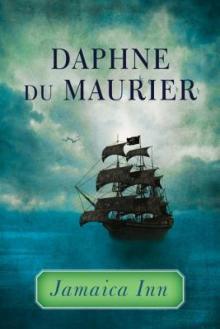 Jamaica Inn
Jamaica Inn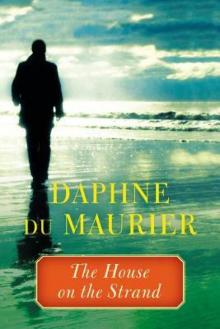 The House on the Strand
The House on the Strand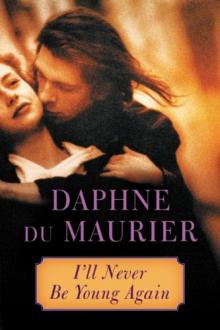 I'll Never Be Young Again
I'll Never Be Young Again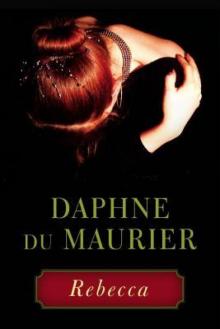 Rebecca
Rebecca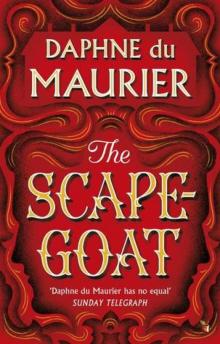 The Scapegoat
The Scapegoat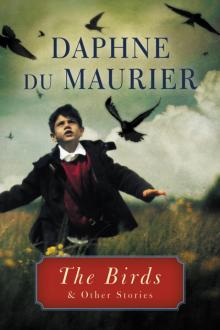 The Birds and Other Stories
The Birds and Other Stories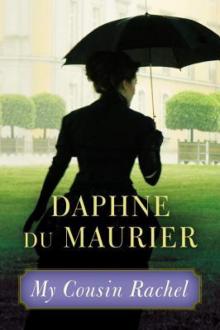 My Cousin Rachel
My Cousin Rachel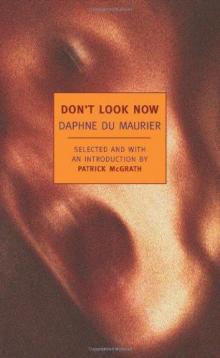 Don't Look Now
Don't Look Now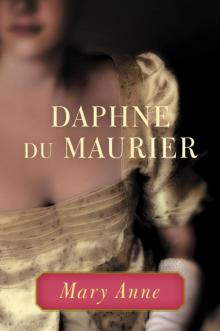 Mary Anne
Mary Anne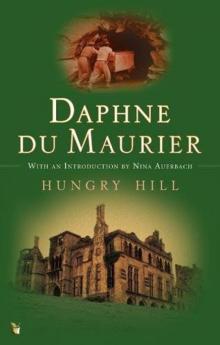 Hungry Hill
Hungry Hill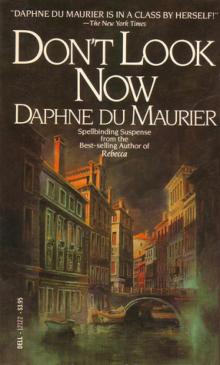 Don't Look Now and Other Stories
Don't Look Now and Other Stories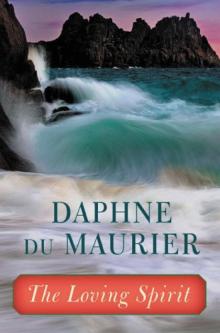 The Loving Spirit
The Loving Spirit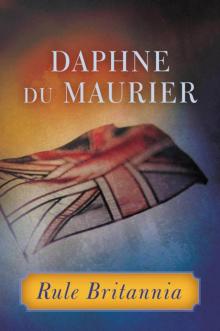 Rule Britannia
Rule Britannia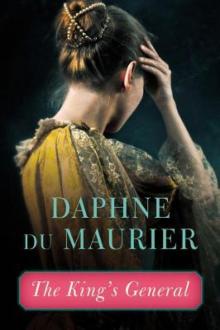 The King's General
The King's General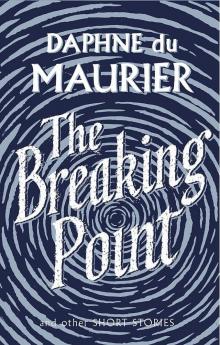 The Breaking Point: Short Stories
The Breaking Point: Short Stories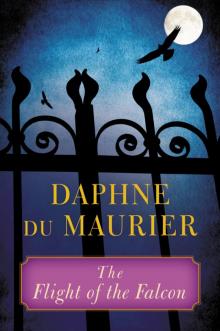 The Flight of the Falcon
The Flight of the Falcon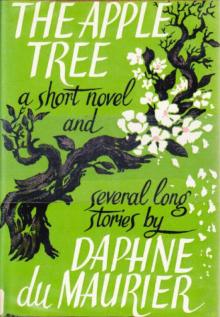 The Apple Tree: a short novel & several long stories
The Apple Tree: a short novel & several long stories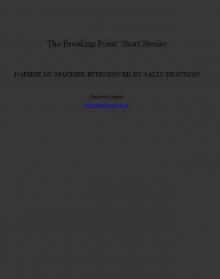 The Breaking Point
The Breaking Point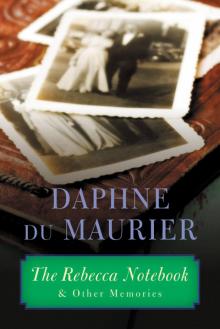 The Rebecca Notebook
The Rebecca Notebook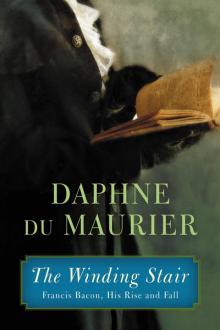 The Winding Stair: Francis Bacon, His Rise and Fall
The Winding Stair: Francis Bacon, His Rise and Fall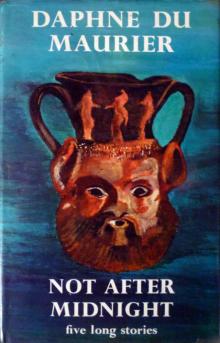 Not After Midnight & Other Stories
Not After Midnight & Other Stories The Doll
The Doll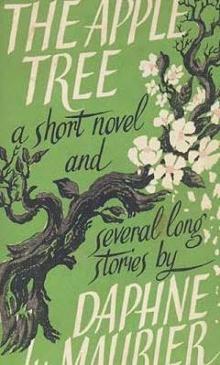 The Apple Tree
The Apple Tree